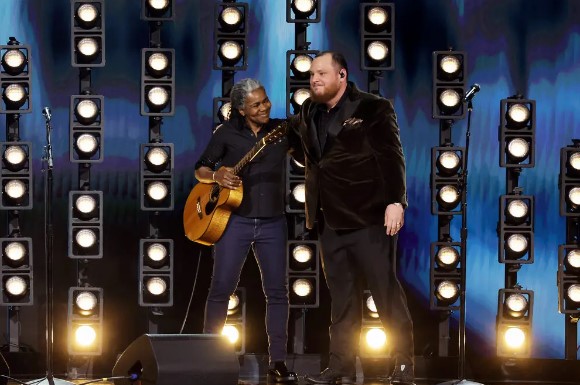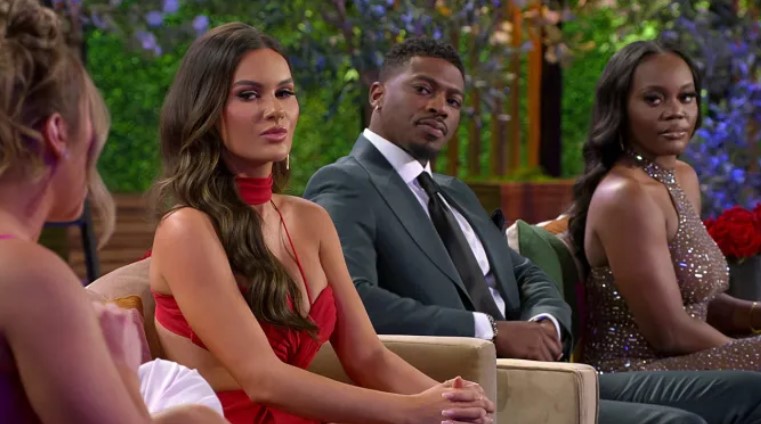When the elusive folk singer sang her 1988 hit song “Fast Car” live for the first time in years, she was met with the respect and admiration she has long deserved(Tracy Chapman).

It is common to anticipate that a well-liked performer who hasn’t been on stage in a while will seem shaky, uneasy, and vulnerable.
But you saw the happiness flowing from the face of the legendary, elusive folk singer Tracy Chapman when the camera first panned back from a close-up of her fingers strumming a well-known riff on an acoustic guitar during Sunday night’s Grammy Awards. Her grin seemed pleased. Her voice’s rich stability and steadfast tone.
Enjoying the thunderous applause of her fellow musicians, Chapman conveyed the sense, to use the words of her timeless song, that she belonged.
She did this by performing her spirited 1988 hit “Fast Car” live for the first time in years, duetting with country star Luke Combs, whose faithful rendition of the song was one of last year’s classic hits.
Just her own acoustic guitar and a painful performance of “Fast Car” were Chapman’s only musical accompaniment during her solo performance of the song at the 1989 Grammy Awards. (She won best new artist among her three prizes that evening.)
Not only was there more time gone than before, but Chapman’s gray hair now tastefully framed his face, adding to the performance’s unique vibe on Sunday night. Combs, who was born the year following Chapman’s Grammy performance, was there and he treated Chapman with awe-inspiring devotion.
From all colors, genders, and decades, he appeared to be a stand-in for the countless others who, throughout the years, had found their greatest wishes realized in this song and wanted to express their thanks to Chapman.
Combs never overpowered Chapman despite their lovely chorus harmony and brief line exchange. Her tone was opalescent, while his added some gritty quality.
No one could, he realized at that very time. He was staring at her with an uncontrollably respectful expression that spoke it all. Witnessing the sight and sound of folk singer Tracy Chapman, a mature guy with confidence who packs stadiums, was clearly shaking.
He wasn’t the only one, either, as some of the biggest names in music were shown standing ovating and happy during the performance, as shown in the few crowd photos taken outside.
It typically takes a stylistic makeover for a cover of a well-known song to appeal to a new generation of listeners, even when the original was published decades prior.
However, Combs’s version, which peaked at No. 2 on the Billboard Hot 100, was appealing because of how closely it followed Chapman’s performance. All Combs did was add a bit more arena-rock oomph to the rhythm section and a little country twang to his phrase.
Although it’s common to refer to music as “timeless,” “Fast Car” proved to be just that when it came to being a successful song over thirty years later.
However, the popularity of Combs’s recording and its comeback generated a discussion over the song’s appropriate genre.
Combs began his music career in Nashville after moving from his birthplace of North Carolina. Prior to the release of “Fast Car,” all of his releases were categorized as country music on charts.
As a result, Chapman became the first Black songwriter to win song of the year at the Country Music Association Awards in November when “Fast Car” took home the trophy.
This seemed to be less of a reason for joy and more of a sobering reminder of how few Black women are recognized as “country” musicians, a genre with a convoluted and lengthy history of racial discrimination.









